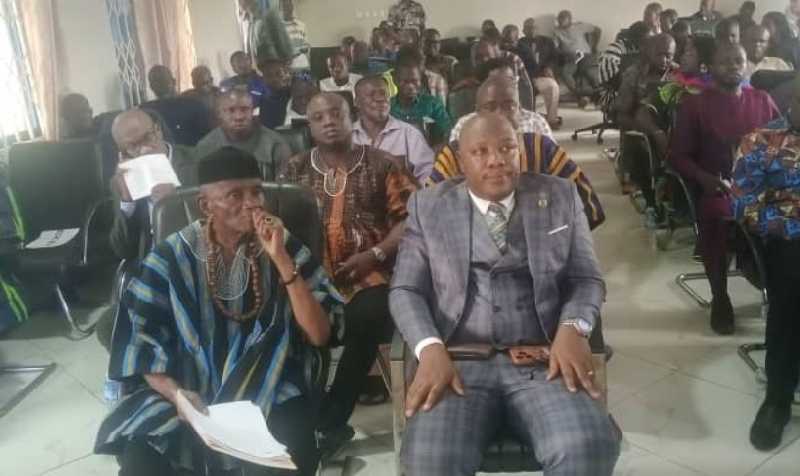The Oti Regional Coordinating Council (ORCC) has announced plans to launch a region-wide clean-up campaign to address the poor state of sanitation in the region.
The campaign, scheduled to take place on the first Saturday of every month if successfully implemented, aims to promote a clean and healthy environment in all distinct capitals and major communities.
Mr. John Kwadwo Gyapong, the Oti Regional Minister, made this declaration during Oti Regional Coordinating Council meeting for the first year in 2025.
The Minister revealed that the region is plagued by open defecation and indiscriminate waste disposal, which has resulted in the accumulation of filth in the regional capital, Dambai.
He added that the ORCC acknowledges that the state of sanitation in the region leaves much to be desired.
To address these challenges, the Minister explained that the ORCC will collaborate with development partners such as UNICEF, World Vision and Global Communities to implement a Community Led-Total Sanitation (CLT) program and other WASH interventions.
The Regional Minister has urged all Municipal and District Chief Executives (MDCEs) to take a keen interest in the clean-up exercise and procure basic clean up materials such as brooms, rakes, shovels and wheelbarrows to aid the exercise.
However, he seized the opportunity to highlight several challenges facing the region, which include slow pace of infrastructural development, chieftaincy and land disputes, high rate of teenage pregnancies and poor performance in education.
Mr. Prosper Kwaku Addo, Dean of MDCES in the Oti Region, praised the ORCC for organizing its first meeting of the year 2025.
He expressed satisfaction with the deliberations and outcomes of the meeting, assuring that the participants would utilize the directives and guidance provided by the regional minister.
The participants shared their experiences and insights with the Ghana News Agency (GNA), highlighted the meeting’s impact.
They commended the ORCC for creating a platform for departmental heads and agencies to discuss key issues affecting the region and develop strategies for addressing them.
